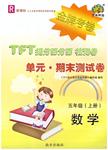题目内容
Going to a friend’s house is very exciting. You may spend time with a friend and get to see where he lives. So remember to be polite.
When to arrive
The first thing to remember is that when a friend invites you, you need to arrive on time. If your friend tells you to come “around 3:00”, that means you can turn up a little bit after 3:00. But usually it is a good idea to arrive at the right time.
What to bring
Often it is also nice to bring something to your friend’s house. This could be a box of chocolates for you two to share, or maybe a movie that you can watch together. You can also bring some flowers. A little gift is a nice way to show your friend that you are excited to be at his house.
How to greet (问候)
When you visit your friend’s house, you may also meet his parents. You should tell them who you are and they may tell you their names. As a child, I went to visit my friend Paul. I called his parents by their first names John and Mary. But now I know it is more polite to call them Mr. or Mrs. Smith. This will show them more respect (尊重) and then they may tell you to call them by their first names. Another way to show respect is to call them Madam or Sir.
It is a cool thing to visit a friend’s house. Be polite to your friend and your friend’s parents, and you will be invited again!
小题1: If you are told to get to your friend’s house around 5:00 p.m., it is polite to arrive at_____
小题2:When the writer was a child, he called his friend’s father _____.
小题3:The passage mainly (主要) tells us _____.
When to arrive
The first thing to remember is that when a friend invites you, you need to arrive on time. If your friend tells you to come “around 3:00”, that means you can turn up a little bit after 3:00. But usually it is a good idea to arrive at the right time.
What to bring
Often it is also nice to bring something to your friend’s house. This could be a box of chocolates for you two to share, or maybe a movie that you can watch together. You can also bring some flowers. A little gift is a nice way to show your friend that you are excited to be at his house.
How to greet (问候)
When you visit your friend’s house, you may also meet his parents. You should tell them who you are and they may tell you their names. As a child, I went to visit my friend Paul. I called his parents by their first names John and Mary. But now I know it is more polite to call them Mr. or Mrs. Smith. This will show them more respect (尊重) and then they may tell you to call them by their first names. Another way to show respect is to call them Madam or Sir.
It is a cool thing to visit a friend’s house. Be polite to your friend and your friend’s parents, and you will be invited again!
小题1: If you are told to get to your friend’s house around 5:00 p.m., it is polite to arrive at_____
| A.5:02 p.m. | B.4:50 p.m. | C.4:30 p.m. | D.5:30 p.m. |
| A.Smith | B.John | C.Mary | D.Paul |
| A.when to arrive at your friend’s house | B.how to greet people |
| C.what to bring to your friend | D.how to be a good visitor |
小题1:A
小题1:B
小题1:D
小题1:根据If your friend …… after 3:00.可知比预定时间迟一点比较好,故选A。
小题1:根据As a child…… John and Mary.可知朋友的父母名字分别是约翰和玛丽,而玛丽一般是女性名字,约翰是男性名字,故选B。
小题1:这篇文章通过何时到达、带什么和如何问候,三个环节告诉了我们怎样做一个受欢迎的拜访者,所以选D。如何成为一个好访客。
小题1:根据As a child…… John and Mary.可知朋友的父母名字分别是约翰和玛丽,而玛丽一般是女性名字,约翰是男性名字,故选B。
小题1:这篇文章通过何时到达、带什么和如何问候,三个环节告诉了我们怎样做一个受欢迎的拜访者,所以选D。如何成为一个好访客。

练习册系列答案
 提分百分百检测卷单元期末测试卷系列答案
提分百分百检测卷单元期末测试卷系列答案
相关题目